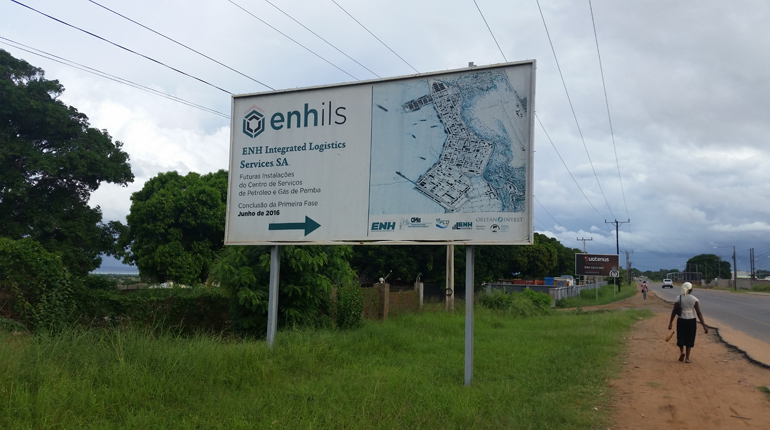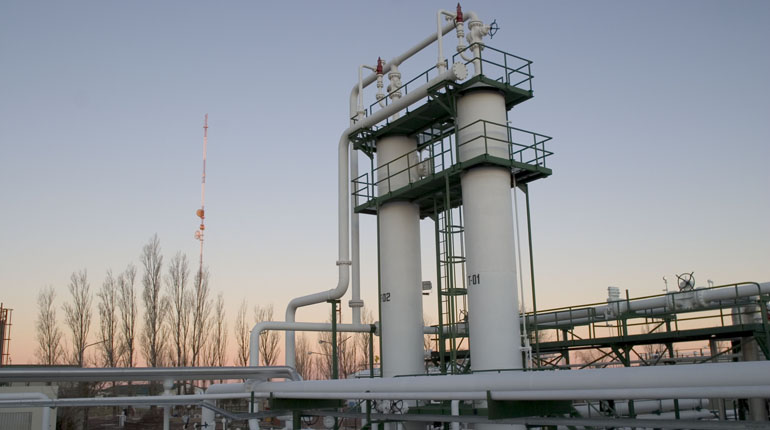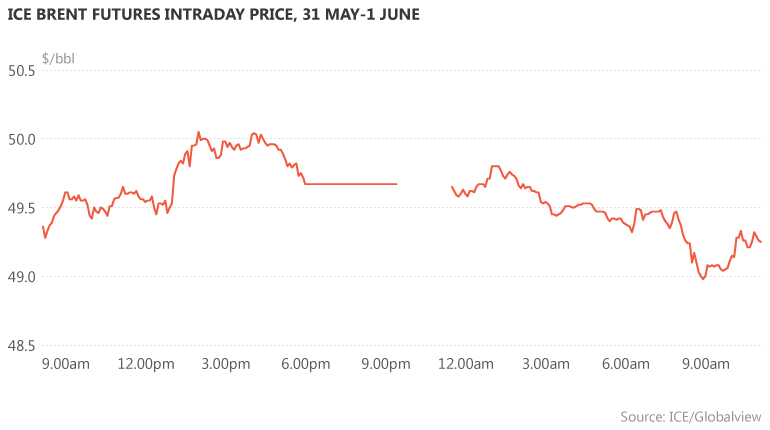 The entry to the Pemba logistics base, which will act as a hub for oil and gas exploration in Mozambique. (Interfax)
The entry to the Pemba logistics base, which will act as a hub for oil and gas exploration in Mozambique. (Interfax)
Eni’s potential farmdown of its Offshore Area 4 gas block in northern Mozambique to ExxonMobil would be a major boost for the country, where planned FLNG projects are facing delays in the wake of low oil prices.
"This deal would seem to provide further evidence that the Mozambique opportunity is simply too big to be ignored and, despite the difficult environment now, that it has a future," Charlie Garnett, senior client manager at Africa-focused commercial consultancy AML, told Natural Gas Daily.
The Wall Street Journal reported on Thursday that Exxon was in advanced talks to buy part of Eni’s Area 4 stake, although the exact size of the stake under negotiation has not been revealed.
Eni, which still holds 50% of Area 4, has said a number of times over the past three years that it has been looking to farm down an additional 15-20% interest in the block.
In terms of the value Eni can hope to extract from the deal, the Italian company sold a 20% stake in Area 4 to China National Petroleum Corp. for $4.2 billion in 2013, when oil prices were averaging just above $100 per barrel.
Even then, analysts suggested the Chinese supermajor had overpaid for the stake, but with oil prices now languishing at just below $40/bbl, the price Eni will be able to negotiate for the stake is expected be considerably less.
A source in Maputo confirmed to NGD that Exxon has visited Eni’s Mozambique data rooms – but so too have other potential buyers.
Sources familiar with the deal told the WSJ the Exxon acquisition could be announced in the next few weeks.
Eni is planning to make an FID on the 3.4 mtpa FLNG plant envisaged for Area 4 in June. The government finally approved the development plan for Coral FLNG in February this year – more than a year after it was first submitted – so the possibility Exxon may come on board could have helped Eni finally clinch approval.
"If reports of government lenience towards Eni in the Coral development plan are accurate, then this may provide an explanation for that," said Garnett.
"The opportunity to attract a major player, with the requisite balance sheet, would serve as an insurance policy of sorts for the government," he added.
Financial clout
However, the sale will need to close if Eni is to make its June FID deadline. Having a financial heavyweight such as Exxon – which has an estimated market cap of $350 billion – behind the deal could help speed the financing process for the project, which will cost an estimated $8-9 billion.
But NGD understands not all of Area 4’s shareholders are keen to push forward with the development as it stands. Given the high cost of Coral, some members are keen to postpone an FID until oil prices recover.
While the bulk of lending from the project is expected to come from Korean, Chinese and Italian export credit agencies, the Area 4 consortium will also look for support from commercial banks, discussions with which are still in an early stage.
Exxon has long been interested in East African gas, but the Shell/BG Group merger may have increased the company’s desire to make a greater play for Mozambique.
Sources familiar with the matter told the WSJ Exxon is said to have an interest in becoming an operator in the development, and a banking source told Reuters the company could look to buy the full 50% stake in Area 4.
However, sources in Maputo have told NGD Eni is keen to remain operator of the block.
"Shell buying BG put pressure on Exxon to respond in the gas space. They were always interested in Mozambique, but it was just a question of the price," one London-based oil and gas analyst told NGD.
As well as negotiations to buy Eni’s Area 4 stake, Exxon is still rumoured to be one of the frontrunners to buy Anadarko’s 26.5% stake in neighbouring Area 1.
Exxon won three exploration blocks in Mozambique’s fifth licensing round last October. The company also has a 35% stake in Block 2 offshore Tanzania – one of four blocks intended to feed into the planned 10 mtpa LNG plant in Lindi.
If the US supermajor becomes the operator of Mozambique’s LNG projects it would give it huge leverage over the pace of gas developments in both Mozambique and Tanzania, one Dar es Salaam-based oil and gas expert told NGD.
"While Exxon only has a small stake in the Tanzania LNG project company, because the development is still at such an early stage it still wields a lot of influence. It could give it the ability to speed things up in Mozambique and slow them down in Tanzania, if that’s what it wants," the source said.








Talk to us
Natural Gas Daily welcomes your comments. Email us at [email protected].